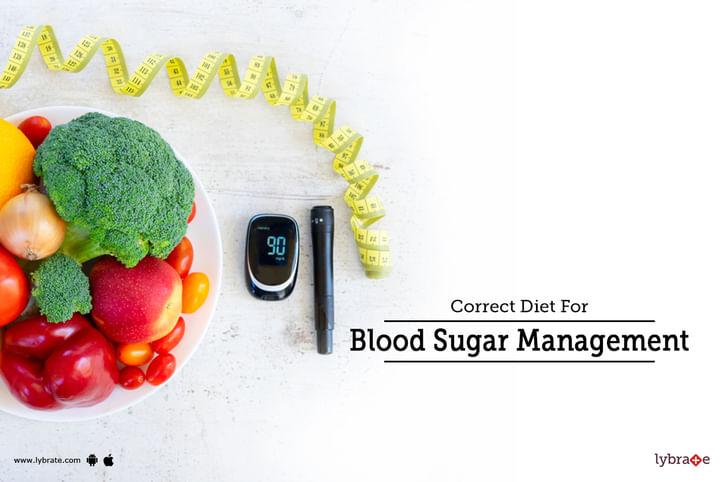Correct Diet For Blood Sugar Management
Nutrition is a vital part of a healthy lifestyle when you are a diabetic. Following a healthy meal plan helps you stay active and keeps your blood sugar levels in check. What you eat, when you eat, and how much you eat are all important factors for keeping your blood sugar levels within the desired range.
Foods to eat if you have diabetes
If you have diabetes, you should try to eat a variety of healthy foods from all food groups in certain portions, as recommended by your healthcare professional.
Include these foods in your daily meal –
-
Vegetables – This should include both starchy and non-starchy vegetables like broccoli, tomatoes, carrots, potatoes, and green peas
-
Fruits – Berries, apples, melon, oranges, grapes and bananas
-
Grains – Half of your daily portion of grains should be whole grains like rice, oats, wheat, quinoa, and cornmeal
-
Protein – Lean meat, fish, eggs, tofu, chickpeas, dried beans, nuts and seeds
-
Dairy – Low-fat or non-fat dairy products like cheese, milk, and yoghurt
These foods are rich in fibre, ‘healthy’ carbohydrates and fats – all that helps lower blood sugar, cholesterol, and insulin levels.
How much to eat?
It is not just about what you eat but also how much of it you are eating. Therefore, when you plan your meal, take into account your portion size. The following diet plan is tailor-made for an individual requiring 1200-1600 calories per day –
-
Breakfast – 1 medium slice of whole-wheat bread with 2 teaspoons of jelly, half a cup of shredded wheat cereal with a cup of low-fat milk, a fruit, and coffee
-
Lunch – Roasted chicken/grilled chicken sandwich on brown bread with low-fat cheese/avocado and lettuce, a medium-sized apple
-
Snacks – A handful of roasted chickpeas or almonds, 50-100gm of yoghurt with berries, and peanut butter with sliced apples
-
Dinner – Grilled fish in ½ to 1teaspoon of vegetable oil, a small portion of baked potato, half a cup of green beans and carrots, unsweetened skimmed milk/green tea
Incorporating the right kind of foods in the right proportion is the best way to control your blood glucose levels and avoid complications arising from diabetes.
The normal range of blood sugar in healthy individuals is between 4.0 to 5.4 mmol/L when fasting and less than 7.8 mmol/L two hours after your meal. To manage your blood sugar, balance what you drink and eat, stay physically active and continue taking your medications, if any.


+1.svg)
